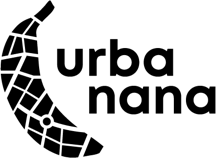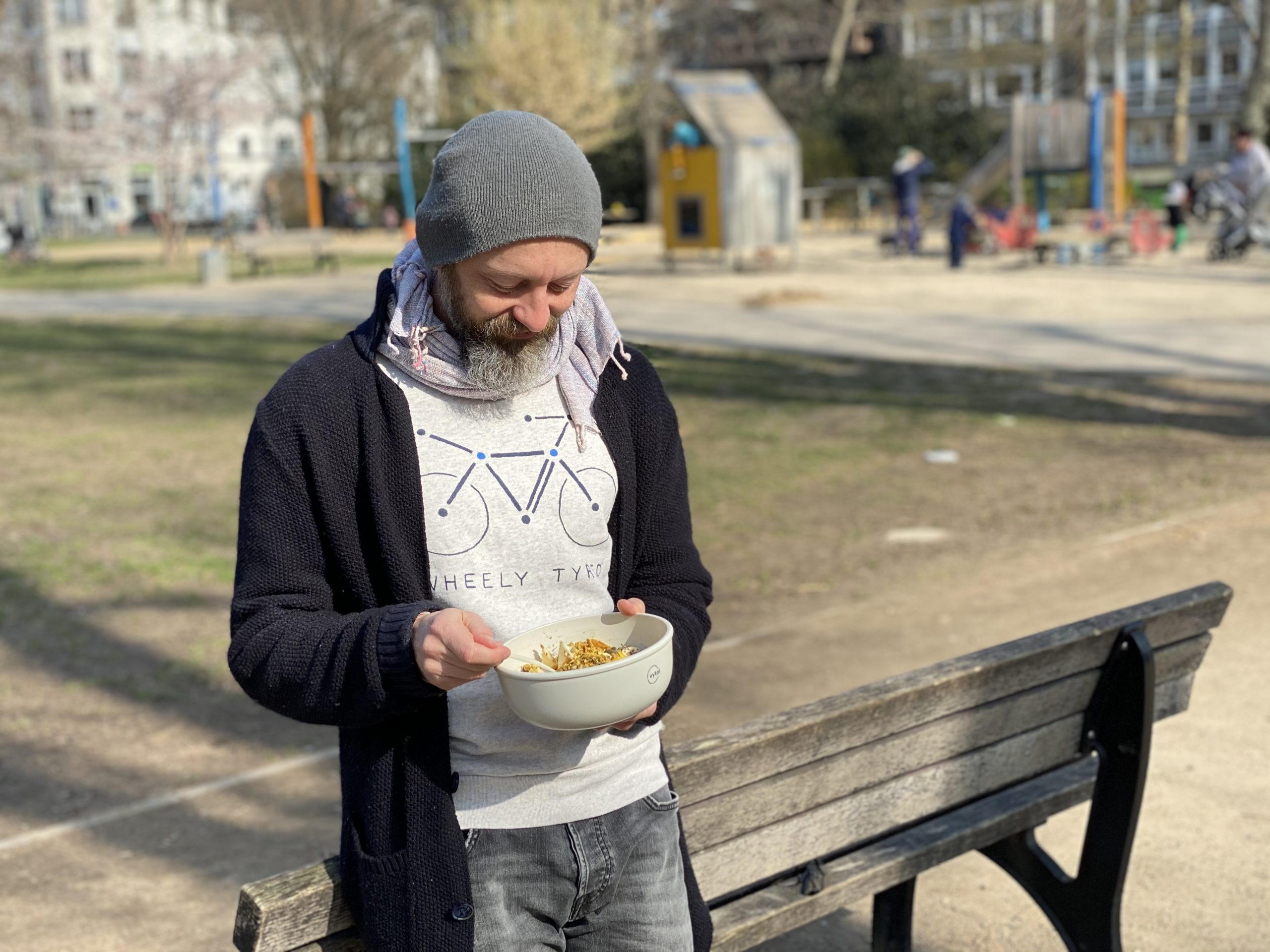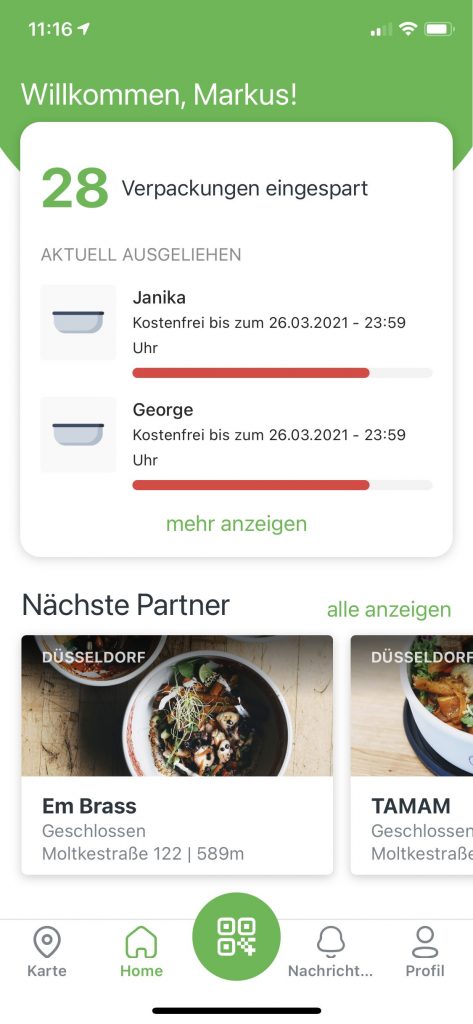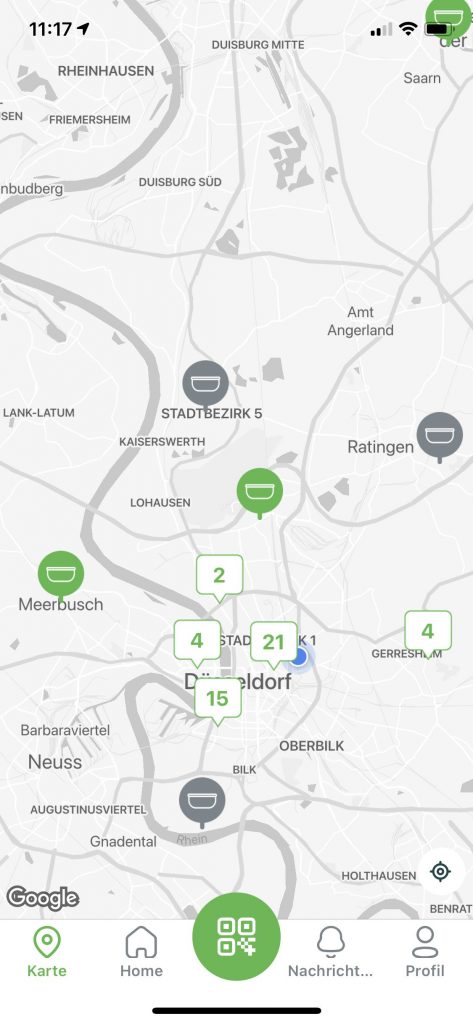Wasting resources has come out of fashion, and sustainability is trendier than ever. Cologne based start-up VYTAL is perfectly up to date with its innovative system relying on reusable containers to avoid disposable and plastic packaging in gastronomy. It’s deserved the label of “future-proof”, as our author Markus Sekulla thinks.
Germany in 2021 – It is the second year of the Covid-19 pandemic. Gastronomy is closed, delivery services and take-out packaging are ubiquitous. At the same time, the mountain of plastic waste to be incinerated and recycled, not only in Germany but also in other parts of the world subject to lower environmental standards, is growing. This approach harms the environment, and as a result humankind. Emissions increase, and so does pollution of the seas in a cycle we all need to work together to break.
Cologne start-up VYTAL has declared war on this waste of resources. Founders Dr. Fabian Barthel, Dr. Tim Breker, and Sven Witthöft are in the process of establishing a digital recycling system that offers anyone, including gastronomists, supermarkets, and delivery services, sustainable and cost-efficient alternatives for disposable products and plastic waste. The design of beautiful and stable packaging is one thing. Sustainable action is another, and both of these trajectories meet at VYTAL.
Starting out as a cool idea among three former consultants from Boston Consulting Group, the concept received nation-wide attention at the latest when presented in the German version of “Shark Tank”. The three founders received great feedback on their concept, and eventually managed to acquire an investor for their idea. Their appearance there was also the reason for me to download the app and to start cautiously inquiring in every restaurant that used too much disposable packaging whether they had already heard of it or not.
The three former colleagues can also present a classical story of success when asked how they ended up founding their start-up. Ordering their daily lunches in the office, the three couldn’t help but notice the amounts of waste they were producing with it. Many items are not sufficiently recycled either. This led to the idea of a reusable solution. They have quit their consultancy jobs and are now fully dedicated to their idea from their office near Cologne’s main train station. Well, right now they probably mostly work from home, actually.
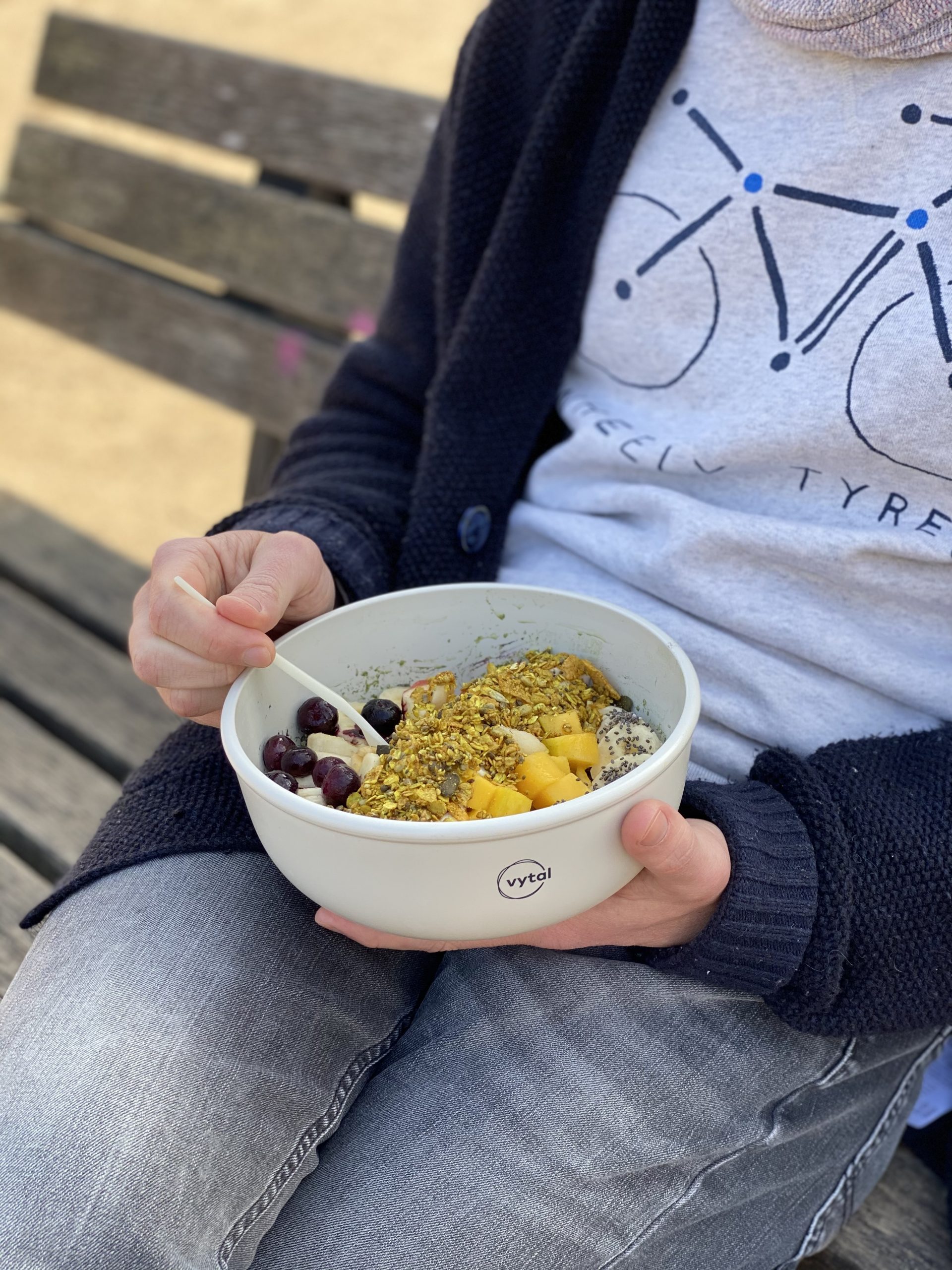
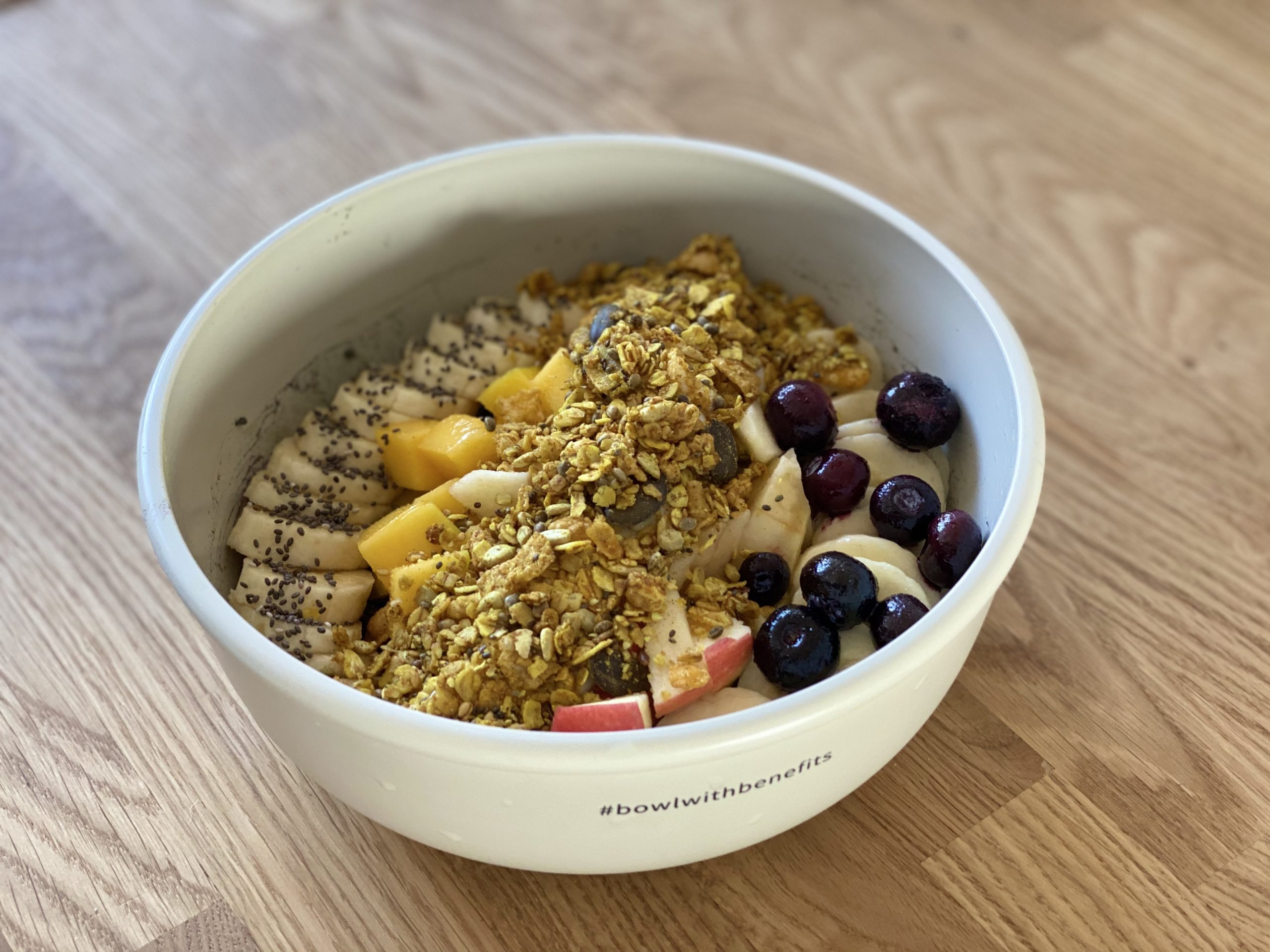
VYTAL is aiming to revolutionize take-out food
How does it work exactly, though? The start-up’s idea is as simple as it is ingenious. Just a few steps are required on the path to greater sustainability and a #bowlwithbenefits:
Of course, the system was suffering from the typical chicken-or-egg issue in the beginning. If the VYTAL boxes aren’t offered by enough restaurants, they’re not of any interest for the customer. If customers aren’t using the app, the model will collapse.
I started using the boxes in late summer of 2020, when Düsseldorf had 21 participating restaurants. That included three in my own hood (Flingern), among them luckily some that I have always liked to eat at. That makes me proud of the packaging units I have saved so far, which I can always see at the top of the app (28, whoop whoop). Supporting the coronavirus-stricken gastronomy scene in my quarter as a result is another positive effect.
Fast-forward to March 2021. Our city now has 41 restaurants, plus a few in the closer vicinity. The system seems to become established, making the service even better for myself as a user. It sounds like a proper win-win-win situation.
Let’s talk about the founders briefly. My question when dealing with such start-ups tends to be why they aren’t sitting in Berlin. Cologne, and as a result North Rhine-Westphalia, offers the founders plenty of benefits that everyone from the Rhineland is closely familiar with already. It’s easy to get into contact with people, and that is relevant for VYTAL’s business both when recruiting and when gaining business partners and customers.
I simply love sophisticated concepts like this one. My advice to everyone is to jump in and join this start-up idea from North Rhine-Westphalia, aiming to make the world a better place.
Text: Markus Sekulla | Photos: Markus Sekulla
